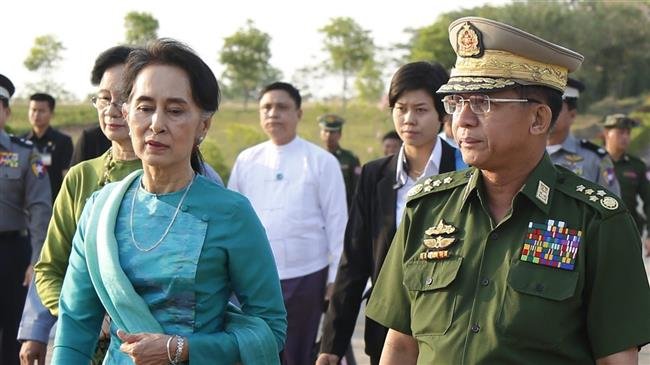
RNA - The move comes as global pressure mounts on Myanmar to act on accountability after a military crackdown in the Western state of Rakhine last year drove some 700,000 of the largely stateless minority over the border into Bangladesh, Al-Jazeera reported.
The nine countries said a briefing by the mission's chairperson would allow the council to "receive further information on this situation and its implications for international peace and security".
The request is likely to run into opposition from China, which has friendly ties with Myanmar's military and has sought to shield it from UN Security Council action.
In a letter to the council, Myanmar's Ambassador Hau Do Suan said his government "strongly objects" to the request to hear from the fact-finding mission.
In a report released last month, the UN fact-finding mission said that Myanmar's top generals - including Commander-in-Chief Min Aung Hlaing - must be investigated and prosecuted for genocide in Rakhine.
They urged the council to refer the case to the International Criminal Court in The Hague or create an ad hoc international criminal tribunal, such as the one that was established on the former Yugoslavia.
Myanmar has rejected accusations that its military committed atrocities in the crackdown.
Britain, France, Peru, Sweden, Ivory Coast, the Netherlands, Poland and Kuwait joined the US in requesting the meeting be held this month. Nine votes are required at the 15-member council to approve an agenda item and vetoes do not apply.
In his letter, Myanmar's ambassador repeated the country's complaints that the UN report was "one-sided", based on "narratives and not on hard evidence".
"Putting accountability above all else without regard to other positive developments is a dangerous attempt that will face utter failure," he warned in the letter.
According to Fars News Agancy, Myanmar says the violence in Rakhine was triggered by Rohingya rebels who attacked border posts in August 2017.
But the fact-finding mission said there were reasonable grounds to believe the atrocities were committed with the intention of destroying the Rohingya, warranting the charges of "genocide".
The report found the military's tactics had been "consistently and grossly disproportionate to actual security threats", adding that estimates of some 10,000 people killed in the crackdown were likely too conservative.
847/940